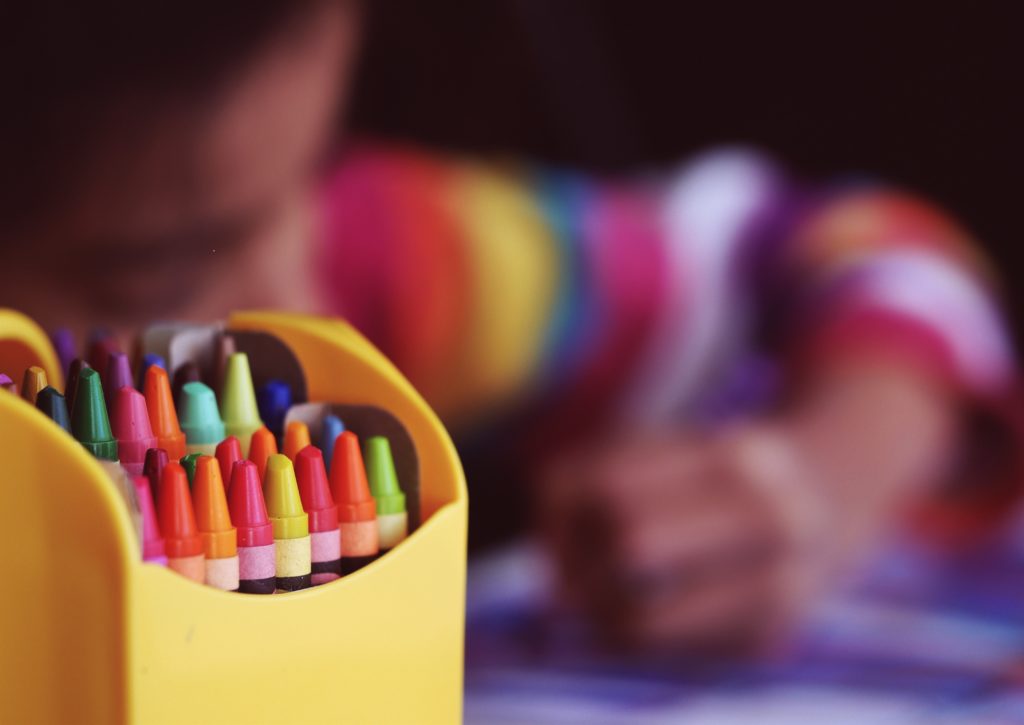 The reality of the climate crisis continues to become more alarming, and is poised to affect the future generations the most. The children of today and subsequent generations will be living in a world with harsher weather catastrophes, drowning cities, sweltering days, disappearing water, and polluted air. So what are we teaching these kids to prepare them for the possibility of such a bleak future? I haven’t been in the public school system for quite some time now, but I didn’t receive any climate change education in the mid-2010s. I heard stories here and there on the news. Still, I didn’t become fully aware of the crisis our planet faced until I became vegan and started watching documentaries on my own.
The reality of the climate crisis continues to become more alarming, and is poised to affect the future generations the most. The children of today and subsequent generations will be living in a world with harsher weather catastrophes, drowning cities, sweltering days, disappearing water, and polluted air. So what are we teaching these kids to prepare them for the possibility of such a bleak future? I haven’t been in the public school system for quite some time now, but I didn’t receive any climate change education in the mid-2010s. I heard stories here and there on the news. Still, I didn’t become fully aware of the crisis our planet faced until I became vegan and started watching documentaries on my own.
Still, I hoped that this was mostly because I was in the public education system before climate change was a “mainstream” topic. So, I decided to ask kids and teenagers who are still in K–12. I have a teenage sister who goes to high school in Virginia, while my partner has two younger siblings in Virginia, one in elementary and one in middle school. I was also able to ask some family friends who have students in Texas. To my surprise, all of them said that they were not being taught about climate change. The high school students said that some of their history teachers would mention it as a current event but wouldn’t get in-depth.
It seems that this is not uncommon in the United States. According to an NPR survey, a majority of teachers reported never discussing climate change in their classrooms. What’s even worse, a separate study found that 1 in 3 teachers actually teach climate change denial. But it is not all bleak; for example, Washington state passed a multi-million dollar budget in 2018 to help teachers educate students about climate change; however, the topic is still up to individual schools or districts’ sole discretion whether or not it is taught.
With the U.S. being the world’s second largest polluter and second largest carbon emitter, this is quite unnerving. So how is the world’s largest polluter and greenhouse gas emitter doing? At first glance, China seems to be doing a lot better. Climate change is actually on the Chinese curriculum. Children are being taught about what steps they can take to slow down and prevent the crisis. But that’s where it stops. China is avoiding any responsibility as a government and teaches children that the blame lies with the people rather than with the government. Any discussion of holding the government accountable for its policies is extremely dangerous, inside and outside the classroom.
The possibility of people and government working together to create new policies that would limit emissions and pollution is not even mentioned. Although children learning about how to minimize their own footprint is terrific and a step forward that is not what will save the planet from a climate crisis. I also wonder what this will do to the children as eco-anxiety becomes a more prevalent problem. If they continue to grow up thinking climate change is 100 percent their fault, I’m worried about what that will do to their mental health. As individuals, we have the power to choose what brands we shop, how we commute, what type of food we eat, but there are choices that we are unable to make because we need help from the government to make those choices. On top of that, our choices take time to be reflected, but if we work together with our governments, change can happen more rapidly, which is what we need at this time.
The top two biggest emitters and polluters in the world are both making a mistake. China must show its youth that a combination of personal choices and public policy change is the way forward. The United States must begin educating the next generation on the reality of climate change and what it means for the world. In the meantime, this seems to be yet another obstacle we must take on ourselves. I urge you to speak to the young ones in your life about climate change in a way that inspires rather than create fear.
Get more like this—Sign up for our daily inspirational newsletter for exclusive content!
__
Photo: Aaron Burden on Unsplash




